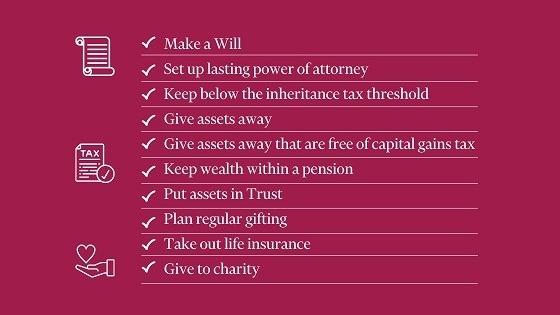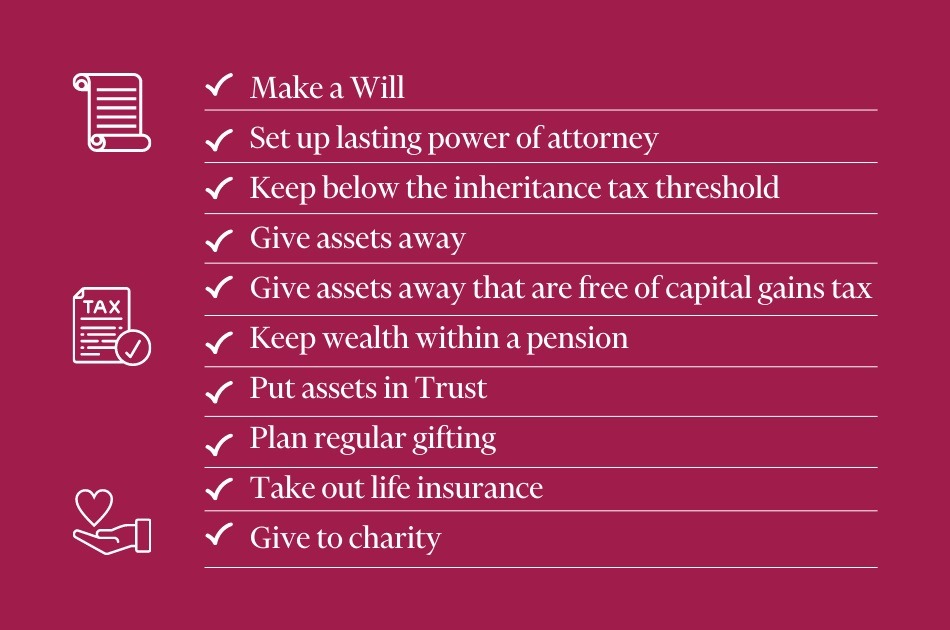6 benefits of a property protection trust
https://www.ellisbates.com/wp-content/uploads/2023/03/Property-Protection-Trust-Infographic-holder.jpg 560 315 Jess Easby Jess Easby https://secure.gravatar.com/avatar/70f816837c455030814d46a740cfc12d89893aaf8cbf8c8f8f59387d7b30ac08?s=96&d=mm&r=g
There are several benefits to putting a Property Protection Trust in place. It allows you and your partner to own 50% of your property each, so when one of you passes their share can be passed to their chosen beneficiary, whilst protecting the surviving partner’s lifetime interest in the property.
If you would like to find out more about our inheritance tax planning services, then please get in touch.









 Helping you look forward to a hard-earned retirement – with a whole of life financial plan
Helping you look forward to a hard-earned retirement – with a whole of life financial plan
 By Grant Ellis, Director Ellis Bates Group
By Grant Ellis, Director Ellis Bates Group
 How to secure your family’s financial future.
How to secure your family’s financial future.